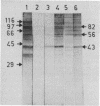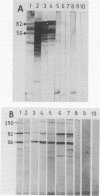Abstract
In the present study, we wished to demonstrate the ability of surface gametocyte antigens to induce protective immunity against Eimeria maxima infections in chickens. In order to accomplish this goal, we employed maternal immunization as a means of providing large amounts of specific antibodies to offspring chicks. Upon challenge with sporulated E. maxima oocysts, chicks from hens immunized with affinity-purified gametocyte antigens showed greatly reduced oocyst production compared with chicks from sham-immunized hens. These results suggest that maternal immunization with gametocyte antigens can be used as a means to provide transmission-blocking immunity against E. maxima infections.
Full text
PDF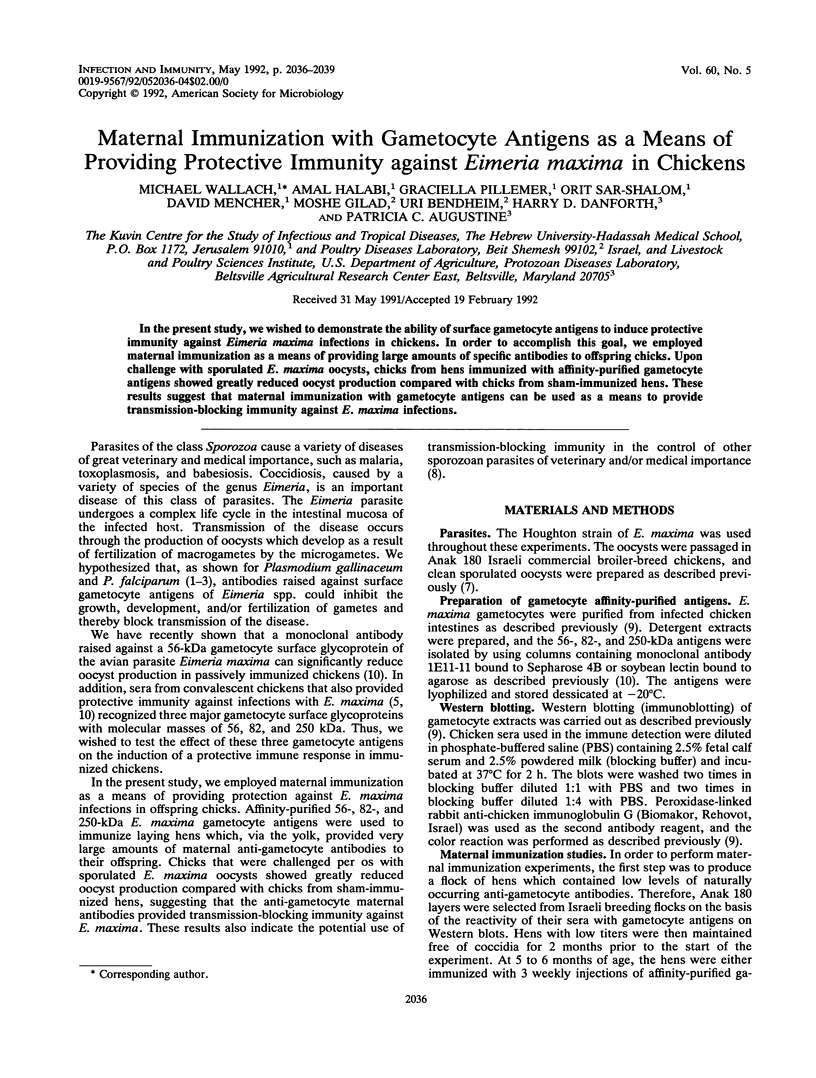
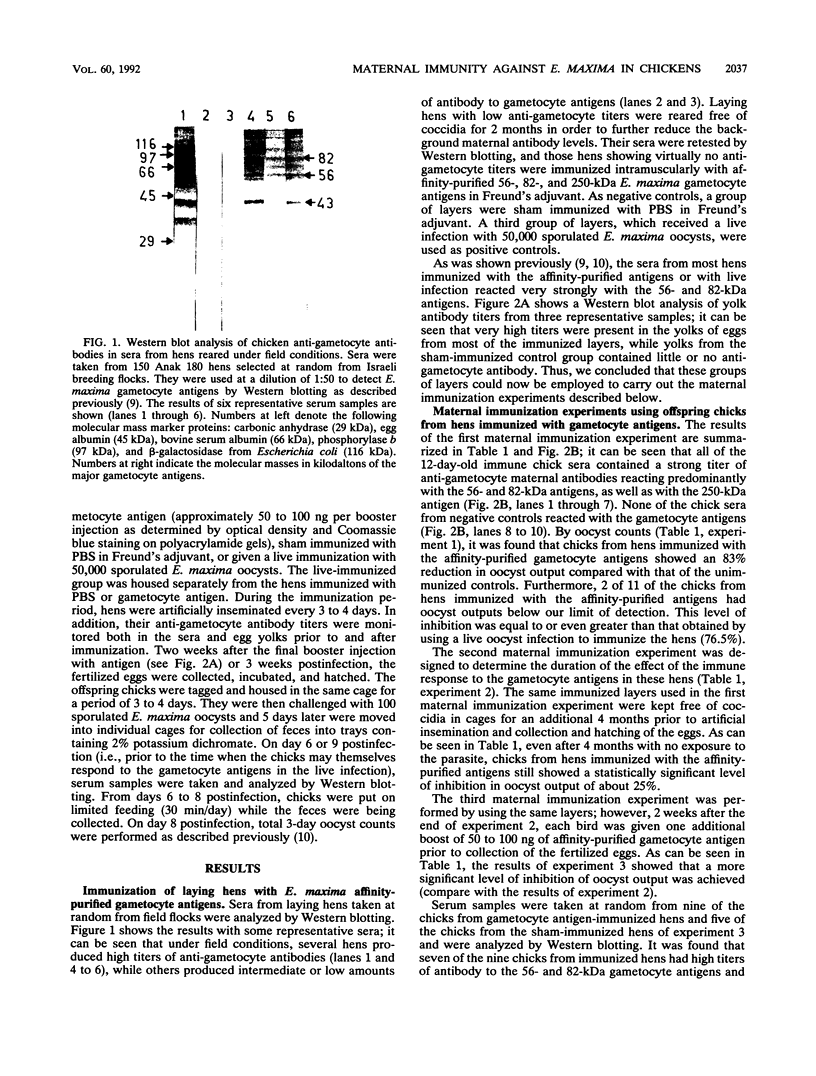
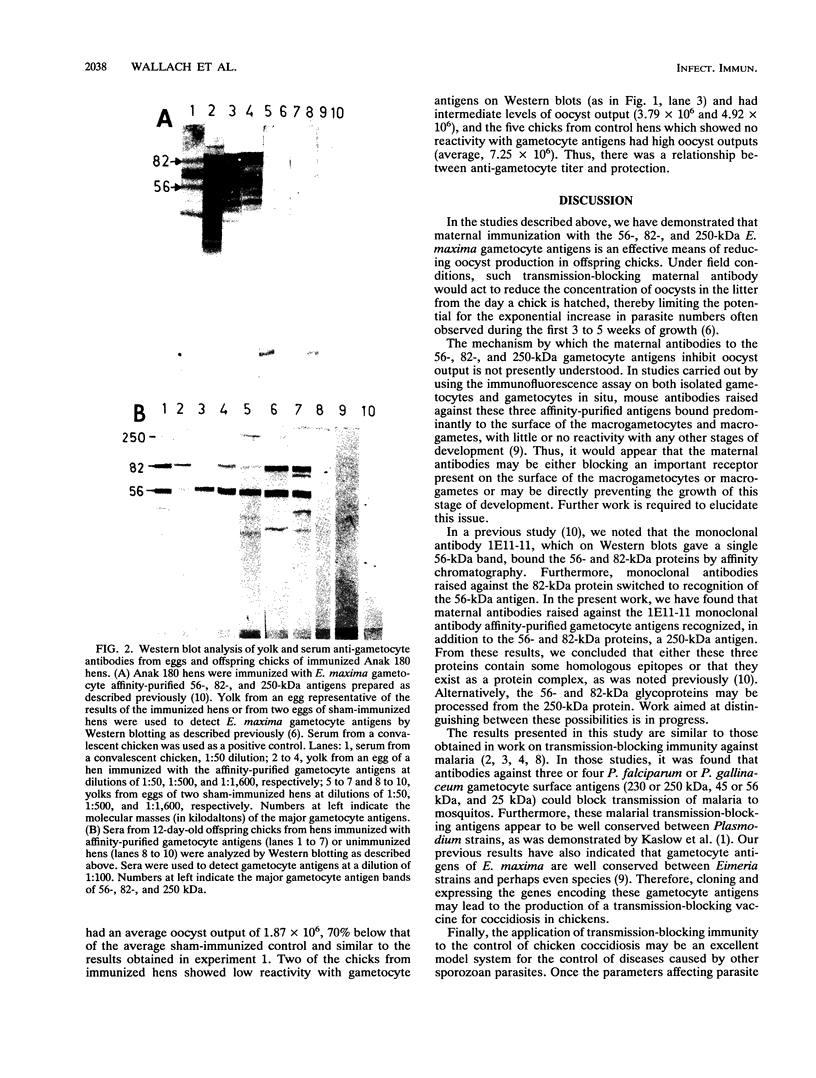
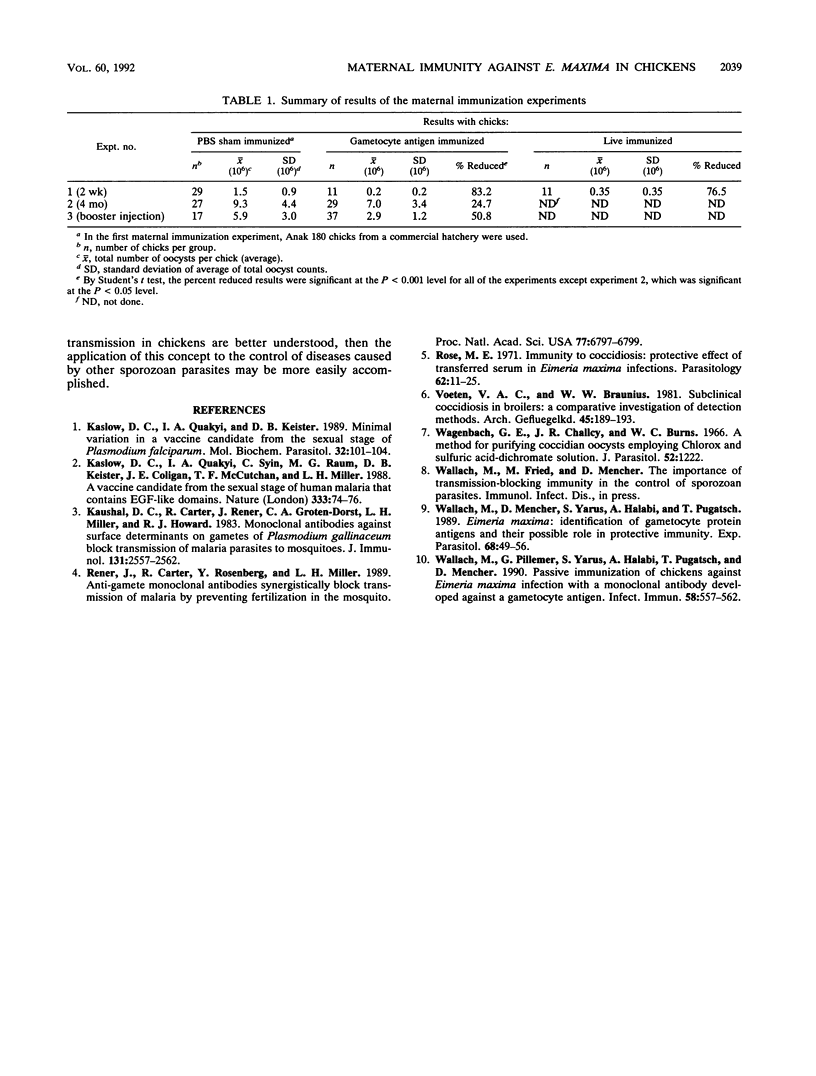
Images in this article
Selected References
These references are in PubMed. This may not be the complete list of references from this article.
- Kaslow D. C., Quakyi I. A., Keister D. B. Minimal variation in a vaccine candidate from the sexual stage of Plasmodium falciparum. Mol Biochem Parasitol. 1989 Jan 1;32(1):101–103. doi: 10.1016/0166-6851(89)90134-5. [DOI] [PubMed] [Google Scholar]
- Kaslow D. C., Quakyi I. A., Syin C., Raum M. G., Keister D. B., Coligan J. E., McCutchan T. F., Miller L. H. A vaccine candidate from the sexual stage of human malaria that contains EGF-like domains. Nature. 1988 May 5;333(6168):74–76. doi: 10.1038/333074a0. [DOI] [PubMed] [Google Scholar]
- Kaushal D. C., Carter R., Rener J., Grotendorst C. A., Miller L. H., Howard R. J. Monoclonal antibodies against surface determinants on gametes of Plasmodium gallinaceum block transmission of malaria parasites to mosquitoes. J Immunol. 1983 Nov;131(5):2557–2562. [PubMed] [Google Scholar]
- Rener J., Carter R., Rosenberg Y., Miller L. H. Anti-gamete monoclonal antibodies synergistically block transmission of malaria by preventing fertilization in the mosquito. Proc Natl Acad Sci U S A. 1980 Nov;77(11):6797–6799. doi: 10.1073/pnas.77.11.6797. [DOI] [PMC free article] [PubMed] [Google Scholar]
- Rose M. E. Immunity to coccidiosis: protective effect of transferred serum in Eimeria maxima infections. Parasitology. 1971 Feb;62(1):11–25. doi: 10.1017/s0031182000071249. [DOI] [PubMed] [Google Scholar]
- Wagenbach G. E., Challey J. R., Burns W. C. A method for purifying coccidian oocysts employing clorox and sulfuric acid-dichromate solution. J Parasitol. 1966 Dec;52(6):1222–1222. [PubMed] [Google Scholar]
- Wallach M. G., Mencher D., Yarus S., Pillemer G., Halabi A., Pugatsch T. Eimeria maxima: identification of gametocyte protein antigens. Exp Parasitol. 1989 Jan;68(1):49–56. doi: 10.1016/0014-4894(89)90007-6. [DOI] [PubMed] [Google Scholar]
- Wallach M., Pillemer G., Yarus S., Halabi A., Pugatsch T., Mencher D. Passive immunization of chickens against Eimeria maxima infection with a monoclonal antibody developed against a gametocyte antigen. Infect Immun. 1990 Feb;58(2):557–562. doi: 10.1128/iai.58.2.557-562.1990. [DOI] [PMC free article] [PubMed] [Google Scholar]




